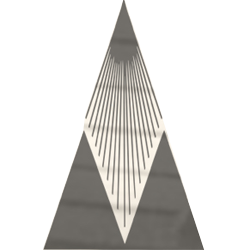
Måndag, 3 oktober 2022
19:00-23:00
Åldersgräns: 18+
This is how grief becomes a landscape.
Under lockdown, her typically collaborative songwriting practice became solitary. She wrote on piano and organ, instruments on a larger scale than her usual guitar that felt more ”like a solid foundation you can stand on.” Her lyrics kept returning to images of black holes and gravity, all-consuming phenomena that rend our common experience of physical reality. ”I became obsessed with black holes, which is the ultimate gravitational pull,” Fohr says. ”It also makes such a synonymous metaphor to death. Things go in, they can only go one way. They go in and they never come out.”
From that colossal gateway, songs began to form. They followed the disintegration of the world as it stands, the hard-wrought rituals and habits that are already beginning to fracture under the pressures of climate catastrophe, as on ”Vanishing,” where Fohr sings ”goodbye” to everything she can see and touch around her. They pinned down claustrophobic moods through the threatening whispers of ”The Chase,” and they shook them loose with sweeping vocal runs, like those that lattice the slow, enveloping ”Walking Toward Winter” and pierce the melancholic ”Stranger,” a chilling piano-and-string composition that was recorded live in a single take.
Working at home on her computer, Fohr wrote, arranged, and produced each note of -io . She wrote for a 23-piece orchestra, gathering strings, horns, and drums around her daring vocal melodies. She staged -io on a scale vaster than anything she’d recorded before, a scale that matched the enormity she’d weathered, big enough to hold the world in its tumult.
Under COVID restrictions, Fohr could only record with six other players in the studio at a time. She and her collaborators — 13 renowned musicians from Chicago’s jazz, classical, and experimental scenes — built -io layer by layer, entwining its pain with the clear yearning that sparks at its dark heart. Horns cry out like terrified and distant voices from the dizzying waltz of ”Neutron Star.” A spaghetti-western guitar reverberates as if in a cavern amid the percussive pummel of “Dogma.” Strings thrash against each other like sheets of rain amid ”Vanishing’s” apocalyptic thrum. Amid them, Fohr’s voice rears in space, overdubbed to the point where it becomes an architecture of its own, at once the subject in the narrative and the surrounding environment. The effect is at once capacious and crushing, like being drawn into a gas giant.
